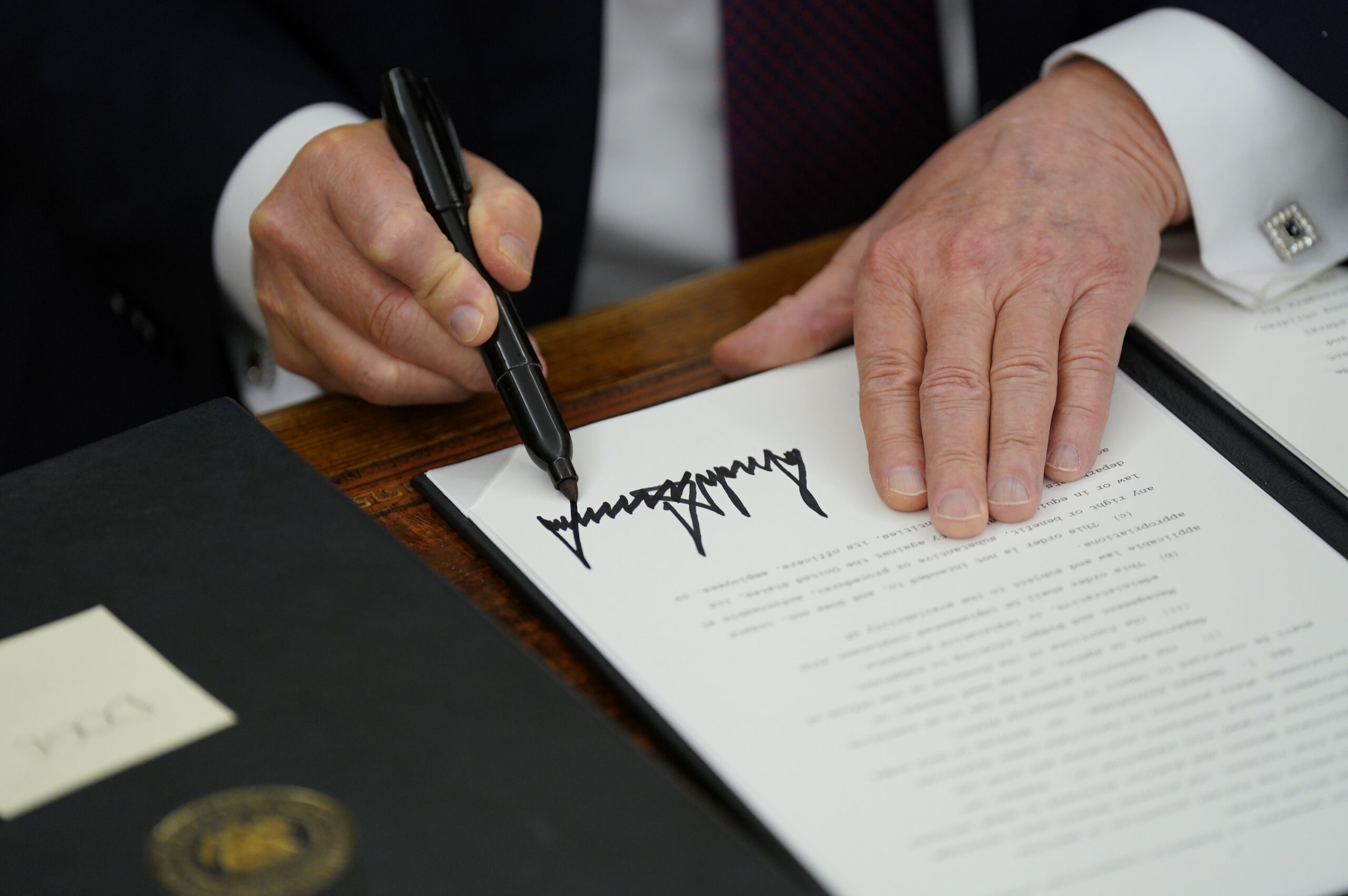
Disparate Ninth Circuit Takes On The Birthright Citizenship Order
Judges Gould and Bumatay come out on different sides of this issue. Who is right? Who is more consistent?

Judges Gould and Bumatay come out on different sides of this issue. Who is right? Who is more consistent?

Extraordinary times.

Protégé™ General AI is fundamentally changing how legal professionals use AI in their everyday practice.

Make Racism Great Again

It's officially a pile on.

At least someone still supports the rule of law.

The judge does not hold back.

Operate with AI driven insights, legal intake, unified content and modular scalability to transform efficiency and clarity.

This is just smart lawyering.

Biden did not try to unilaterally ratify the ERA but that's not stopping the stupid commentary.

* The unstoppable Justice Ruth Bader Ginsburg maintains her three-Term streak as author of the Supreme Court's first signed majority opinion -- and, interestingly enough, it's a unanimous affirmance of the Ninth Circuit (opinion by my former boss, Judge Diarmuid O'Scannlain). [Empirical SCOTUS] * When he's not busy issuing landmark decisions (and feeding his clerks to SCOTUS), Judge Jed Rakoff (S.D.N.Y.) writes erudite essays for the New York Review of Books -- like his latest, a review of Joel Richard Paul's new biography of Chief Justice John Marshall (affiliate link). [New York Review of Books] * President Donald Trump is transforming the federal judiciary with his youthful and conservative appointments -- but the extent of the transformation should not be exaggerated, for reasons identified by Ed Whelan. [Bench Memos / National Review] * Ann Althouse analyzes some of the juiciest passages in Michelle Obama's new memoir (affiliate link). [Althouse] * It has been a long time -- specifically, more than four years -- since the Department of Justice has issued an opinion about the Foreign Corrupt Practices Act, as FCPA guru Mike Koehler points out. [FCPA Professor] * Peter Schuck responds, in thoughtful and civil fashion, to the (many) critics of his and Rogers Smith's argument that the Fourteenth Amendment does not require birthright citizenship for the children of unlawfully present aliens. [PrawfsBlawg] * After last Tuesday's elections, in which Louisiana approved a state constitutional amendment requiring a unanimous jury to convict in a criminal case, Oregon is the only state that allows conviction in some criminal cases without a unanimous jury -- and Gerard Magliocca wonders if this is constitutional. [Concurring Opinions] * He's no stranger to our pages, but Isaac Lidsky -- the child actor (Saved By The Bell) turned first blind SCOTUS clerk turned successful entrepreneur -- still has many insights to share, as he does in this wide-ranging podcast with Goli Kalkhoran. [Lessons From A Quitter]

* Senator Lindsey Graham (R-S.C.) says he plans to introduce legislation to end our "absurd policy of birthright citizenship." Good luck with that, Senator, because if you want to amend the Constitution, you'll need a two-thirds majority in Congress and ratification of three-quarters of the states. [The Hill] * Women are allegedly being paid to make false sexual assault and harassment claims against Special Counsel Robert Mueller, and now the FBI is investigating the situation. The going rate for these made-up stories is apparently $20,000. [The Atlantic] * After having its plan to gift a troubled law school to Middle Tennessee State University be flat-out rejected, Valparaiso Law has decided to call it quits. We'll have more on this totally unpredictable development later today. [ABA Journal] * If you're in law school and your girlfriend breaks up with you, you should probably stop calling her -- unless, of course, you don't mind a harassment conviction and spending a year in jail. Now this fellow is trying to overcome his character and fitness obstacles to become a member of the bar. [Milwaukee Journal Sentinel] * In case you missed it, the Library Innovation Lab at Harvard Law School just unleashed about 6.5 million digitized court decisions online, for free, as part of the Caselaw Access Project. No, that's not a typo -- everything is free. [Fortune] * How did graduates of the Charleston School of Law do on the South Carolina bar exam this past summer? Not too well. For the second year in a row, more than half of them failed the test. On the "bright side," 59 percent of first-time takers from the school passed, up 11 percentage points from last year. [Post and Courier]

Get five practical tips to spot cash flow red flags early, speed up payments, track spending in real time, and build stronger client trust through clear, transparent billing—download the ebook.

* Which lawyers write the best Supreme Court amicus briefs? Adam Feldman uses Ross Guberman's BriefCatch tool to find out. [Empirical SCOTUS] * In advance of Judge Brett Kavanaugh's SCOTUS confirmation hearings, Carrie Severino has this handy roundup of eight important Kavanaugh opinions. [Bench Memos / National Review] * Speaking of which, Professor Steve Vladeck raises some good possible questions for the nominee about the interaction between Morrison v. Olson and special counsel Robert Mueller's investigation. [Lawfare] * I don't think Roe is getting overruled -- but if it were to be overturned, what would happen to state abortion prohibitions that have not been officially repealed? [Josh Blackman] * On that same subject, Professor Michael Dorf wonders: could Justice Thomas save abortion rights? [Take Care] * Wherein Jonathan Adler and James Ho (now Judge James Ho) agree with Elie Mystal on the wrongness of that recent Washington Post op-ed about birthright citizenship. [Volokh Conspiracy / Reason] * Is your legal department a "goat rodeo"? You're not alone, according to Casey Flaherty. [3 Geeks and a Law Blog]

Don't blame Trump/Sessions for this one; this is an Obama/Lynch job.

They can't win in federal court because they shouldn't even be heard in federal court, according to columnist Tamara Tabo.

Two prominent conservative pundits argue about birthright citizenship, "anchor babies," and immigration policy more generally.